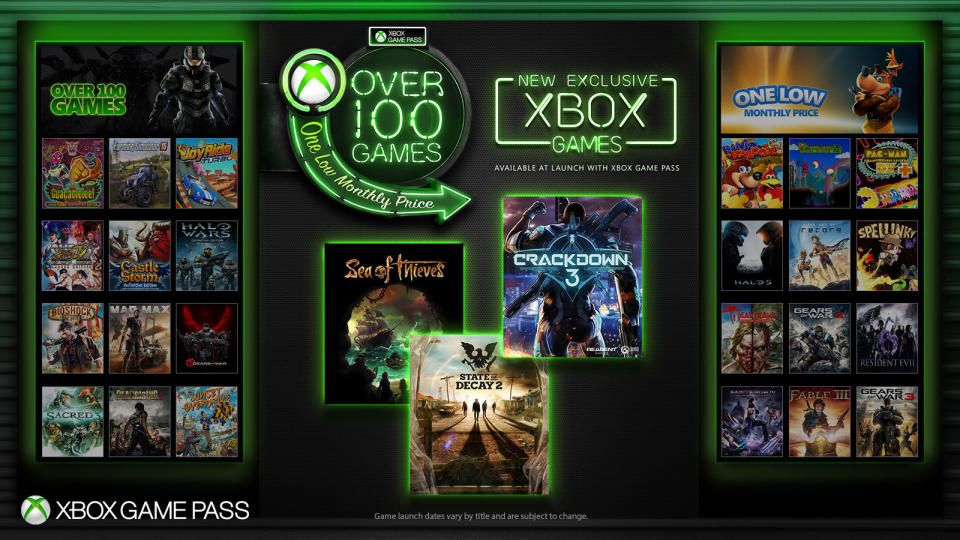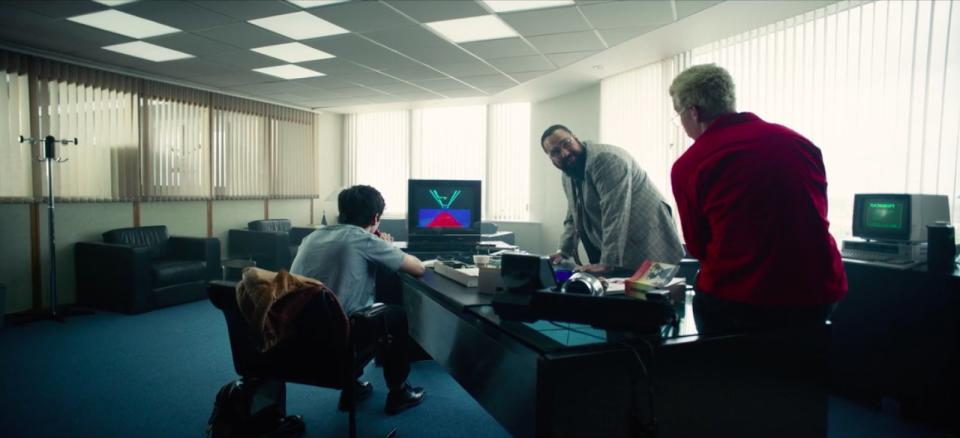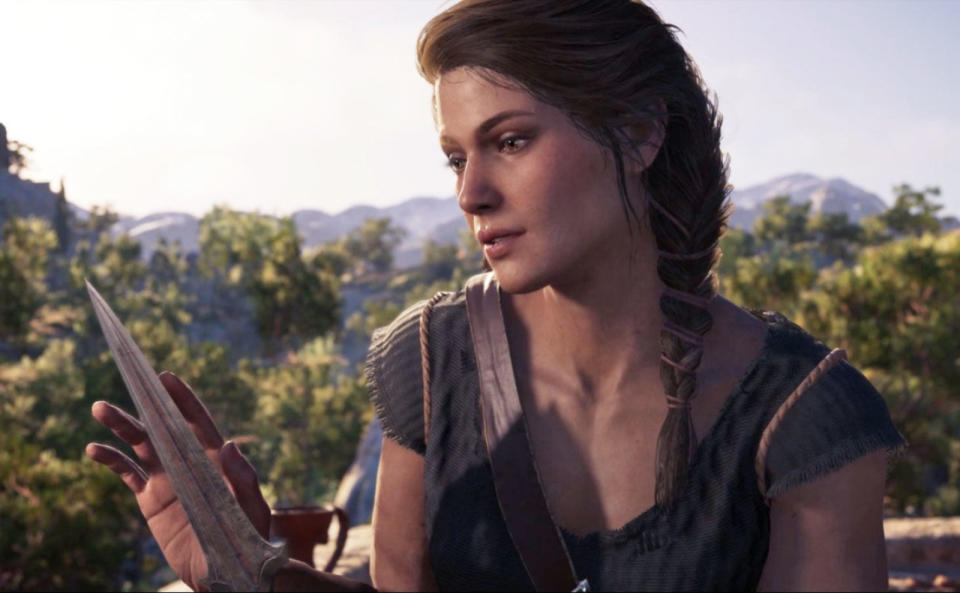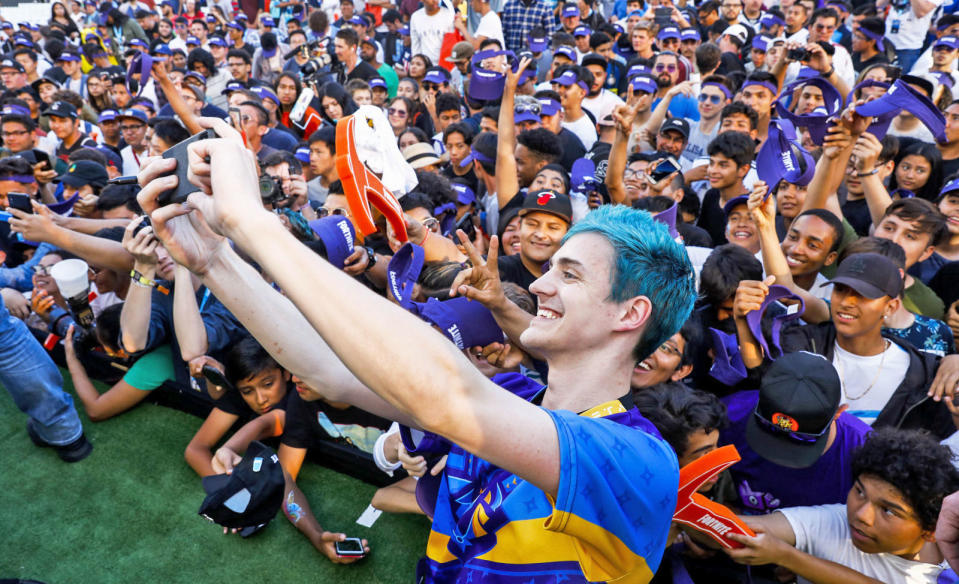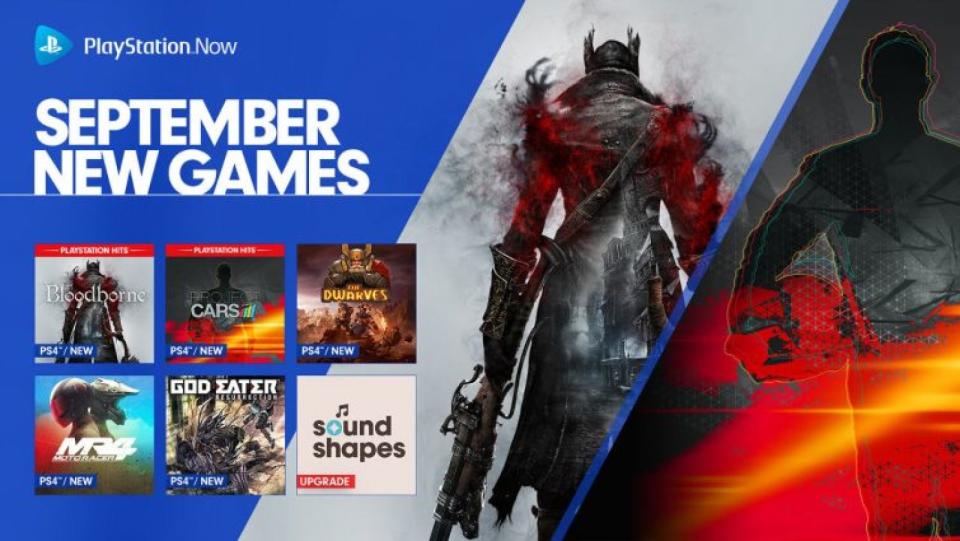Who will be the first Netflix for video games?
Ready, set, go!
Streaming detonated the film and television industries. As recently as five years ago, the advent of Netflix, Hulu, Amazon Prime Video and YouTube Premium sounded the death knell for multi-billion dollar businesses, altered the living-room habits of millions of people, and changed studio production structures permanently. Companies that adapted survived, and the viewing audience received a handful of clear benefits in return -- most notably the ability to watch high-quality shows and movies on demand and, most recently, an explosion of award-winning, culturally transformative entertainment options.
Now, it's video games' turn. The idea of a "Netflix for games" service has been floating around since long before video-streaming became a thing, but it hasn't found a solid foothold quite yet. Streaming games is a more complicated process than streaming video, since it adds user input to the mix. While being piped into a player's home or phone from a server that could be hundreds of miles away, the game has to respond, without lag, to every button press a player makes. Think Bandersnatch on steroids and with much higher stakes, especially for competitive games like Fortnite and multiplayer Call of Duty and Overwatch.

The technology and infrastructure necessary for consumer-scale, seamless game-streaming is nearly here. NVIDIA, Google, Microsoft, Amazon, Verizon and more major companies are making moves in this space, and they finally have the server dispersion and broadband support necessary to roll out their own Netflix-style services as early as this year.
Streaming will alter the video game industry just like it did film and TV. On top of further disrupting the flailing physical market (GameStop might just be the Blockbuster of the game-streaming apocalypse), distributors will likely hold an inordinate amount of power over a game's visibility, pushing it onto the main screen or pulling it into the recesses of the search bar based on unknowable algorithmic variables. If each platform becomes as crowded as Steam or the App Store (or Netflix, for that matter), this means smaller, independent games could find it difficult to grab screen time. Low visibility doesn't just impact potential revenue -- projected sales affect how much funding developers can secure from investors, as described by gamesindustry.biz.
But at this point, nothing is going to stop the cloud-gaming train. As it comes screeching into the station in 2019, here's where eight major companies stand.

Verizon
Here's one fresh off the rumor mill: Verizon is currently quietly testing a game-streaming service called Verizon Gaming, as first reported by The Verge earlier in January. (Note that Verizon owns Engadget's parent company, but that doesn't grant us any insider information here.)
Verizon is apparently testing the service on a handful of NVIDIA Shield set-top boxes; the alpha version includes 135 games, including AAA hits like Destiny 2, Red Dead Redemption 2, Fortnite and God of War. Participants are reportedly promised a $150 Amazon gift card, alongside receiving a Shield and Xbox One controller.
The plan, according to Verge, is to eventually roll out Verizon Gaming on Android devices. The company hasn't officially announced Verizon Gaming, but it's openly building the infrastructure to support such a system. Verizon is making a big push for 5G, the next-generation broadband network that will likely enable average connection speeds of 300 Mbps. Note that Google's cloud-gaming test required a connection of 25 Mbps, at least.
"We frequently conduct internal and external proof-of-concept trials to explore new ways to enrich the customer experience and expand our portfolio of products and services," a Verizon spokesperson told Engadget.

Speaking of Google, the company recently held a beta test for Project Stream, a service that promises to run any game on any laptop or PC via the Chrome browser. It required a connection of 25 Mbps, but even at that low end of the broadband spectrum, Project Stream worked well. The beta went live in October and Google wasn't shy about enticing people to give it a go.
Google has a clear advantage in the streaming space with a vast and robust server infrastructure, and it already has streaming devices in tens of millions of houses with Chromecast.
We learned at CES 2019 that Project Stream uses AMD Radeon graphics (no word on whether that means the coming Radeon VII), rather than any of NVIDIA's offerings. Which brings us to Geforce Now.
NVIDIA
Geforce Now is the closest thing we have to a subscription-based, consumer-ready game-streaming service, and it's been running for the past three years. However, it's been in beta the entire time (currently available on PC, Mac and Shield devices), and the company hasn't made any announcements about a wide-scale launch. However, Geforce Now is impressive. It supports more than 400 games and generally offers a stutter-free gaming experience.
The company is continually updating Geforce Now alongside Shield upgrades, recently adding support for in-game voice chat and streamlined Twitch sharing.
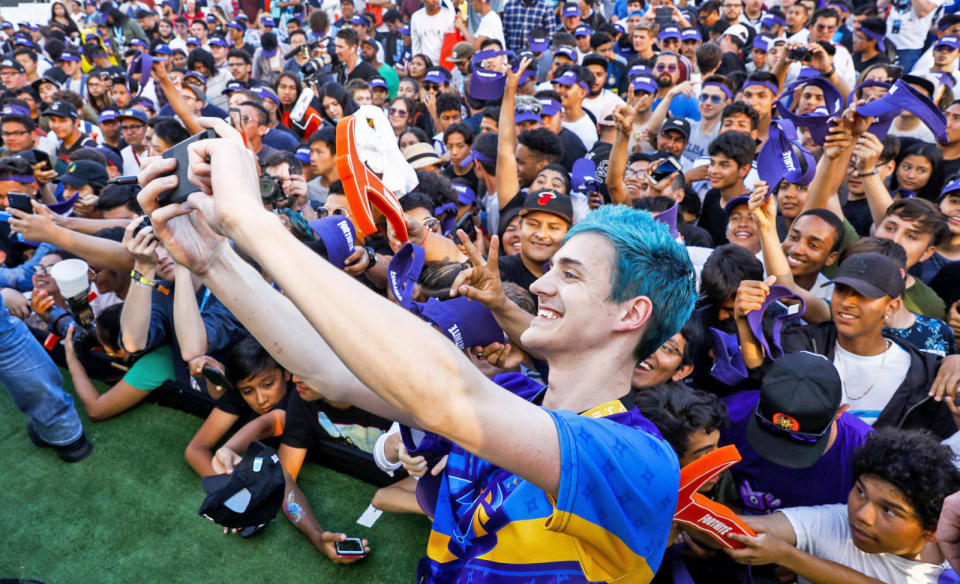
Amazon
Amazon already has a footprint in a slightly different game-streaming space: Twitch. Amazon bought Twitch for nearly $1 billion in 2014, and since then it's grown into a cultural touchstone, hosting celebrities, taking over mainstream headlines, and helping turn live-streaming into a lucrative career for some creators. Add this acumen and brand recognition to Amazon's Fire TV efforts and Lumberyard game engine, and the company has a clear spot in the cloud-gaming race.
Amazon is building a game-streaming service a la Project Stream, though it's unlikely to launch before 2020, according to The Information. That's about all we know so far, and Amazon didn't respond to Engadget's request for comment.
Microsoft
The house of Xbox announced Project xCloud in October, with an emphasis on streaming games to PCs, phones and tablets. However, that's surely not where Microsoft's ambition ends -- the next generation of consoles is on its way and Xbox is reportedly working on hardware designed specifically to support cloud gaming, due out in 2020.
Project xCloud hasn't launched just yet, but Microsoft is planning a beta test this year. Microsoft is in a similar position as Google -- it's spent the past decade or so building out Azure, a robust cloud network that should help keep latency low. Plus, there's the Xbox Game Pass. Microsoft is preparing its audience for a subscription-based future, offering access to more than 200 games for $10 a month, though unlike PlayStation Now, these aren't streamed.
After Sony pulled out of E3 2019 completely, Xbox is poised to own the show this summer (and maybe even the next hardware generation entirely), and it may offer more details about its streaming plans then.

Sony
Sony was an early adopter in the cloud renaissance, buying Gaikai in 2012 and OnLive in 2015, and launching the PlayStation Now game-streaming service in 2014. PlayStation Now is still running today, but it offers subpar streaming capabilities. It's more of a case study in how streaming used to be, rather than where it's going.
Sony hasn't made any recent announcements about its approach to streaming and it won't be at E3 this year. Of course, there are still plans for the future of PlayStation and executives promise we'll hear more throughout 2019.
Electronic Arts
EA isn't building a cloud-gaming platform, but it is working on the technology that could power a streaming-first ecosystem. Project Atlas is EA's upcoming cloud-gaming-development platform, and it's designed to help creators build games from the ground-up with streaming in mind.
This move makes sense for EA. It owns the Frostbite engine, which currently powers franchises such as Dragon Age, FIFA, Madden and Battlefield, and it runs the digital Origin store, which features monthly subscription options. EA bought GameFly's cloud-gaming technology and personnel in mid-2018 (not its streaming business, mind), and by October, CTO Ken Moss had announced Project Atlas.
EA's vision of cloud gaming involves creating a social, constantly connected universe where developers can craft personalized and immersive experiences for players, all driven by artificial intelligence and machine learning. Moss has ambitious goals for Project Atlas, as he described in a Medium post:
EA's vision of cloud gaming involves creating a social, constantly connected universe.
"Project Atlas is designed to seamlessly converge EA's Frostbite game engine and game services as well as artificial intelligence -- giving rise to a new game development platform, optimized for a cloud-enabled world. This will be a fully integrated platform, capable of building the scalable, social, and large-scale experiences of the future."
Nintendo
Yes, Nintendo -- the company that was years behind the competition when it came to implementing online and social features in its games and consoles -- is experimenting with streaming. Players in Japan can stream Resident Evil 7 and Assassin's Creed Odyssey on the Switch right now, with shockingly good results.


